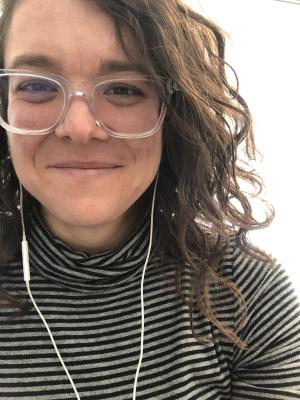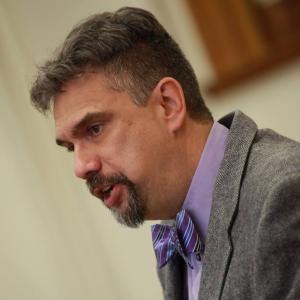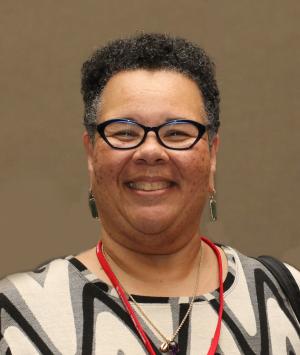Resources

For the last fifteen years or so, I’ve done freelance editing work as a side gig. This winter break, while moping around with a mysterious months-long lung infection (not COVID... probably?), I edited a colleague’s book manuscript, which focused, in part, on neoliberalism (a slippery and contested term) and the deployment of certain reductive conceptions of religion in various development contexts around the world. It was a super interesting read, but that’s not what I want to focus on here. Instead, I want to take inspiration from her critique of various neoliberal terms/concepts and consider one particularly prevalent in higher education—that of “best practices.” This is a phrase we use all the time, especially related to online teaching and learning. I think we have good reason to be suspicious of this idea. Examples of “best practices” abound, even at Wabash. Take the list below, from a Stanford’s Tomorrow’s Professor post, which summarizes a chapter from the older version of The Online Teaching Survival Guide: Simple and Practical Pedagogical Tips (2010): Best practice 1: Be present at the course site. Best practice 2: Create a supportive online course community. Best practice 3: Develop a set of explicit expectations for your learners and yourself as to how you will communicate and how much time students should be working on the course each week. Best practice 4: Use a variety of large group, small group, and individual work experiences. Best practice 5: Use synchronous and asynchronous activities. Best practice 6: Ask for informal feedback early in the term. Best practice 7: Prepare discussion posts that invite responses, questions, discussions, and reflections. Best practice 8: Search out and use content resources that are available in digital format if possible. Best practice 9: Combine core concept learning with customized and personalized learning. Best practice 10: Plan a good closing and wrap activity for the course. Upon first read, who could argue with these? Create a supportive course community? That’s my jam! Develop a set of explicit expectations? I love transparency! It’s not that the practices on these “best” lists are bad ideas, per se. It’s not that I’m opposed to asking for informal feedback or planning a good wrap activity or [fill in the blank]. It’s that such “best practices” are often presented as generic, broadly applicable, value neutral, consensus based, and informed by research, when they aren’t always or necessarily. (See Wendy Brown's Undoing the Demons [2017] for an in-depth critical consideration of this concept.) It may not be clear how to operationalize them in any given context; it may not be possible to do so. Some could even be detrimental if operationalized in certain ways by certain instructors for certain students. Best practices are ostensibly good for everyone, when, in fact, they may be good for no one. (This reminds me of the point of The End of Average (2016), when Todd Rose shows that an “average” person doesn’t exist, so when we design for an average person, we are actually designing for nobody.) Worse, in my mind, is that there can feel like no good way to dispute or critique “best practices.” Especially when written in the imperative, like those above, they don’t exactly invite reflection, conversation, inquiry, experimentation, or collaboration. When we start throwing around the phrase “best practices,” particularly those of us in positions to influence other instructors and what goes on in the college classroom, I worry we start to become “part of a machinery suppressing” faculty. After all, these are the “best” teaching practices. Everyone agrees. Who agrees? Well, the teaching “experts”: instructional designers, staff at centers for teaching excellence, faculty who have won teaching awards, those who publish on this topic. And who has time to question them, especially when everyone is just trying to stay on top of teaching and research and service (amid an ongoing pandemic, nonetheless!)? Trying to also stay on top of literature related to teaching may simply feel like too much. Our teaching contexts are incredibly distinct and diverse. There are so many “situational factors” for us to consider as we design and implement our courses, especially right now. I can’t be sure that what works (some days, ha!) for my Religions of the World course will work for a colleague in my department teaching another section of this very same class during the very same semester. Okay, so creating community seems like a good idea, particularly online, but how I go about doing that this semester over Zoom in my upper-level Religion and Film class will (and should, I think) be very different than how a friend does it in his upper-level U.S. Judiciary Zoom class, even though we are in the same college and have rather similar teaching philosophies. Best practices are somehow specifically evidence-based, but also somehow broad enough to make room for every possible instructional context. That just can’t be. I am fully in support of learning from one another. I am fully in support of sharing and spreading what is known (and some things are known) about teaching and learning. I am fully in support of experimentation and growth, especially in one’s own classroom. I am fully in support of professional development initiatives that encourage faculty to consider what they’re doing in their instruction and—this is the most important—why. I am not convinced that notions of “best practice” necessarily promote any of this. It makes me nervous when anyone starts implying or advising that there is a set, static list (like a top ten) of teaching strategies that will work for everyone, regardless of context, and that if we would all just follow these practices, we would be set. I’m sorry to be the bearer of bad news, but teaching just doesn’t work that way.
A 2020 course by Andrew Monteith at Elon University is "designed to familiarize students with Christian history, with the key topics which have been relevant to assorted Christians, and with the diversity that falls under the umbrella term 'Christianity.'"
A 2020 course by Andrew Monteith at Elon University "investigates traditions that—in many cases—would not identify themselves as 'religion,' or which attempt to reject 'religion' as a concept. Examples of such traditions include New Atheism, Satanism, the veneration of social and political systems, Scientology, and even some religions identified as 'joke' religions, such as Pastafarianism."
A 2019 course by Andrew Monteith at Elon University analyzes "the ways that movies, television, sports, novels, and other types of popular culture can shape, cultivate, interact with, and even serve as religion."

[embedyt] https://www.youtube.com/watch?v=SuHStsvmaG8[/embedyt]
With no manual for this moment in teaching, we have these questions: After triage strategies, what does it take to pursue a discovery process to reestablish education? What are the new sets of questions and who are the new communities of accountability? What is the un-making and the making-anew of the theological educator? Dr. Nancy Lynne Westfield hosts Dr. Mai-Anh Le Tran (Garrett-Evangelical Theological Seminary).

Listen to Dr. Westfield read this blog in an audio format. My mother was deeply loved. She and my father came to live with me in 2008. Mom and Dad became known in the school community as they regularly attended chapel services, lectures and community dinners. Students who were my research assistants and teaching assistants were invited to dinner by my mom who still cooked dinner for our family. When invited by the Dean, Mom and Dad attended one faculty meeting (!!! Sweet Jesus!!! – a story for another time!). My mother, Nancy Bullock Westfield died on December 7, 2010. We funeralized her in the chapel of Seminary Hall. Many students and colleagues attended the service. I felt an outpouring of love for my family. Mom’s homegoing service was a celebration of her life well lived. The celebration highlighted mom’s 81 years of service, artistry, nurture and audacious acts of justice on behalf of poor children and Black children in Philadelphia. And, the homegoing, like so many funerals, was the beginning of my family’s long-walk-through grieving our beloved. In the spring semester of 2011, I was teaching my introductory course. Amy, a brilliant doctoral student, was my teaching assistant. One day while class was convened, Amy, with reticence, asked if she could talk with me in the hallway. I had divided the students into small groups with reflection questions, so the class was, in this moment, on task. I said yes, let’s talk now. Amy looked untypically pensive as we walked into the hallway and away from the possibility of our conversation being overheard by our students. Amy said, “Dr. Westfield…” (full pause; and holding her breath). “Umm…” (empty pause; and still holding her breath) Concerned, I asked, “Amy, what is it?” Amy said, “Dr. Westfield…” (taking a breath to gain courage) “Dr. Westfield, you’ve given that assignment before.” (looking me in the eye for the first time) I did not understand what Amy meant; I frowned to express my puzzlement. My thoughts raced in preparation to disagree. In nano-seconds, I recalled the week before, but I could not recall the learning activities. I turned a half-pivot from her and looked away as I tried to remember, tried to think. Amy, in a gentle, low tone, said, “Last week you divided the students into conversation groups and gave the same reflection questions.” My immediate reaction was to be defensive and tell her that she was mistaken, but before speaking I looked at her eyes filled with such empathy that I knew she was trying to be helpful. My pause created space for her to speak again, “Remember. …. last week you gave the same assignment … and then the students reported in.” “Actually….” Amy went on, “…. this is the third time you have asked them to reflect upon these questions.” As she said these words, I began to remember. I began to orient myself. I began to realize that, indeed, this was the third time I had given the same assignment for class discussion. Without allowing my body to flinch, I jolted from the realization. In exasperation and embarrassment, I whispered in a quiet and defeated tone, “Amy.” With a warm smile, Amy said, “It’s ok – the class understands you’re grieving.” Amy and I returned to the classroom and I called the class out of their small groups. When we gathered, I apologized without giving a reason for the thrice redundant learning activity. I quickly reminded them of the assignment that was due the next week, asked for any questions, then dismissed the class about thirty minutes earlier than our scheduled dismissal. Walking with my mother through her illness and then to her death had been one of the most difficult journeys I have ever taken. Even so, I underestimated the power of sorrow and the ways it can (and does) effect all aspects of life – even the teaching life. My mother’s death had taken a toll on me. Thankfully, Amy had my back. The vaccine for the COVID 19 virus promises an ease to the suffering in our country and around the world. Many of us, faculty, administrators, and students, have personally lost loved ones during this scourge. We grieve. Others will not have had family and friends who died, but will be part of the overall experience of malaise, communal loss, and shock that continues to grip the nation. We grieve. The Black Lives Matter movement’s demands go unanswered. We ring our hands, pray and grieve. The insurrection at the Capital Building on January 6 sent a renewed wave of fear, frustration, and the anxiety yet ripples through our nation. The feelings of loss, terror, and anxiety continue to pierce our awake and our dreams. In our uncertainty, we grieve. We have to acknowledge that we are, all, teaching while grieving. Who is the self who teaches? In this moment of loss, our corporate answer is that we are the people who are seized by sorrow, hurt, and anguish. We are people who are grieving. Teaching as usual is not possible! In recollecting this classroom experience I am not trying to be confessional - as if I had done something wrong. Rather, I tell the story to convey that grieving necessitates additional support and care. Even the most seasoned and conscientious teacher, while grieving, needs help. I am appreciative to Amy for pointing out that I was stuck. Had she not told me, my realization would have been much more painful and embarrassing. Or worse yet, I would not have ever realized. In teaching while grieving, who has your back? Who is your brave Amy? For individuals who are in touch with their grief, what grief counselor, spiritual director or therapist will you meet with regularly as you process the effects of 2020-21 upon your teaching? For learning communities who possess a depth of communal awareness and a sense of togetherness, what rituals, rites, and conversations will you design for this sad moment? What blues songs will you compose? What lamentation will you paint, sculpt, write, create? What new habits will you acquire to honor the dead and the dieing? In what ways will you take your grieving and be inspired, be made brave, be summoned to a deeper, more meaningful call of teaching? What new insights on teaching will you incorporate? Perhaps there will be new ceremonies for graduations, commencements and baccalaureates? Maybe new liturgies or rites of passage will be included in the senior send-offs, the spring dances, and the year books? Perhaps you will begin or end each class with a moment of silence, or of music, or ask students to plan a community-wide protest as a course assignment? Sometimes grief prevents reflection, prevents action – only affords paralyasis. Sometimes while we are grieving all we can do is the little bit we can do; one day at a time. Perhaps, simply keep a journal on your teaching until the grief subsides enough to reflect and plan for change. The courses I taught in the Spring of 2011 were not my best, but they were the best I had to offer at the time. I hope that the little bits I had to offer my students were enough. Thank you, Amy, for your care and support.